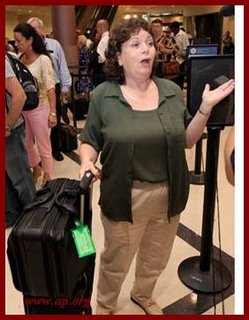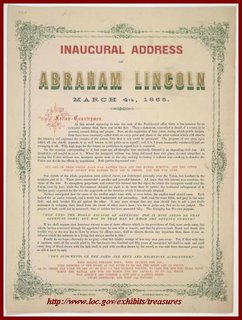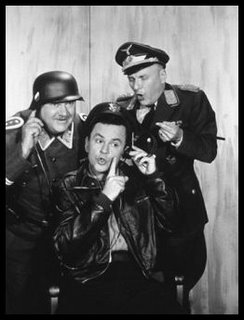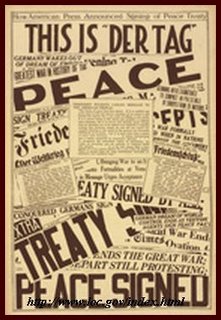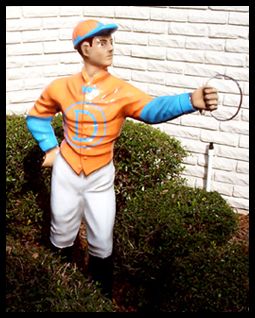
A while ago I read a
Wall Street Journal op-ed written by Lanny Davis. It appears that Mr. Davis has seen the light after campaigning for Senator Joe Lieberman:
“Now, in the closing days of the Lieberman primary campaign, I have reluctantly concluded that I was wrong. The far right does not have a monopoly on bigotry and hatred and sanctimony.”
I’m tempted to be less than gracious to Mr. Davis his naivety, but I’ll take him at his word. If he says he’s shocked about the hate coming from the left wing of his party, I believe him.
What’s brought about the sudden conversion? Mr. Davis just experienced the same things many of us have experienced at the hands of the Democratic Party’s far left. A casual reading of the following excerpted comment from a left-wing blogger will illustrate:
“Good men, Daniel Webster and Faust would attest, sell their souls to the Devil. Is selling your soul to a god any worse? Leiberman cannot escape the religious bond he represents. Hell, his wife's name is Haggadah or Muffeletta or Diaspora or something you eat at Passover” (by ‘gerrylong,” posted on the Huffington Post, July 8, 2006).”If only Mr. Davis had gotten in touch with me before he began campaigning for Senator Lieberman. I could have walked him down Damascus Road and saved him the trauma he’s now experiencing.
Also, in the past few days I’ve also been getting queries from bloggers who are curious about me. In one, a fellow blogger asked this question, “Who is Dilly?”
Dilly, of course, is me. That’s one of the nicknames both my brother and I got tagged with when we were kids.
So, in order to shed some additional light on the nastiness of the left wing of the Democratic Party and add some insight into why I’ve moved from the left to the right, from atheism to Christianity, from the east coast to Middle America, I’ve decided to go back to my very first post, done a little more than two years ago.
Here, then, is my first post, titled “Confessions of a Liberated Lawn Jockey:”
I just read, with great interest, a column by
Eric Alterman posted on the Center for American Progress website. In the column, Mr. Aterman cites an essay by
Thomas Frank, a transplanted Kansan who has gone on to bigger and better things. I'm a transplanted Bostonian, living in Emporia, Kansas. I've lived here for a bit over five years now and have a pretty good sense of what life and politics are like around here. Mr.Frank has gotten quite a bit of press here in Emporia since he published his essay titled Lie Down for America in the April edition of Harper's. His early life in Mission Hills and a two hour visit to Emporia were apparently enough in his mind to look at Kansas as a whole and say things like “Out here the gravity of discontent pulls in only one direction, to the right, to the right, further to the right. Strip today's Kansans of their job security and they head out and become registered Republicans. Push them off the land and the next thing you know they're protesting in front of abortion clinics. Squander their life savings and there's a good chance they'll join the John Birch Society.”
Mr. Alterman applauds Mr. Frank’s work, noting that the Republican Party is employing a two-fold strategy – get the “rubes” up in arms about values and then pick their pockets while they’re needlessly paying attention to those values.
After reading Mr. Alterman’s piece and excerpts from Mr. Frank's I've detected three common themes. First, Kansas, like Caesar who had too much Gaul, has too many conservative Republicans. Second, Kansas is a community of kulaks and serfs who have been manipulated, contrary to their interests, by the rich and powerful. And, third, Alterman, Frank, and the Democratic Party are here to save us from the Republicans and ourselves.
For more than a few of us “rubes” it’s a bit confusing. We knew we needed saving, but we were under the impression we already had a Savior. If Alterman and Frank are right our soteriology is flawed at best and heretical at worst.
How could one possibly argue against such noble theses, especially when they’re stated so eloquently? All we Kansans need to do is put our collective fates in their hands of compassion and they'll take care of us. They’ll defend us! Why would we reject such a generous offer?
My five years here in Kansas and my first twenty growing up in the shadow of Harvard University and the Massachusetts Institute of Technology have given me a few reasons. The most compelling of those is experience.
My brother, sister, and I spent our first few years growing up in Boston's south end, which in our time was Boston's version of Hell's Kitchen. We had all the classic disadvantages many on the political left love to exploit, an alcoholic father who did menial work (he was an ice-man), an un-educated mother (she actually did go as far as the third grade), and an overcrowded tenement on Withington Street we called home.
Our one advantage in life was our loyal support for the Massachusetts Democratic “machine.” We learned early on that any Dillon worth his or her salt was a Democrat through and through. After all, it was the Democrats who were really concerned with our welfare. The Democrats were the “party of the people.”
I don't know how long it took for my brother and sister to come to the point of disillusionment, but the time came for me during the fifties. My brother had graduated to a trade school, my sister to live with relatives in Maynard. I graduated to
Washington Elms and Newtowne Court, government housing projects sandwiched between Harvard and Kendall Squares, just a five cent ride on the MTA to either Harvard University or MIT.
My epiphany came slowly, incrementally, over time.
I recall often having my mother send me up to City Hall to pick up our ADC or Welfare check. It was a walk I came to dread as much as any condemned man must surely dread the gallows or the execution chamber. I suppose I should have been grateful. After all, the Massachusetts Democratic “machine” had my best interests at heart. But I freely confess that it grew increasingly hard for me to feel thankful for the party’s generosity. I accepted the money as much grace as I could muster, but I also learned that each time I made the walk and held my hand out a sale was being recorded. I was selling my dignity to the Democrats for fifty or sixty dollars a transaction.
Looking back at it now I see what a trap it all was. I was the poster child for the nobility and generosity of the party. I was, in the minds of the machine, the hopeless waif, the son of an alcoholic who drank himself to death and a dolt of a mother. I would never be able to succeed without the support of the welfare system.
So, for years I had to accept, against my best interests, the role of “lawn jockey” for the machine. I rarely saw my benefactors, except when I made that dreaded walk to City Hall or when election time rolled around. Then Tip O’Neill’s precinct captains would be sure to drop by and enroll me and my mother in the latest version of the “get out the vote for the Democrats” game. While I should have questioned their intentions, I didn't. After selling my dignity for a few bucks a month, selling my labor for a few empty political promises didn't seem too hard at all.
I don't know how I made it, but, against all odds, I actually completed high school, graduating in the upper half of Cambridge High and Latin's class of 1960. I was hoping for college or a good job. I found neither. The good jobs were taken by people with better pedigrees. But how could I complain? They came from loyal Democratic families just like I had. And, while I felt that I was college material, I had to accept the idea that my address and background disqualified me from attending the good universities, the Cornells, the Columbias, the Yales, the Stanfords, the Harvards, the MIT's.
Not despairing, I joined the Air Force in 1961. While college or a good job would have been nice, serving the country and the ideals of John Kennedy didn't strike me as the end of the line. I served ably and well for eight eventful, tumultuous years. There was the Cuban Missile Crisis, the Cold War, the assassination of JFK, LBJ's “guns and butter” economy. I did tours in Texas, California, Washington D.C., Newfoundland, Vietnam, Panama, Ohio and other posts around the world.
Vietnam was the point of uncoupling for me, the point at which my epiphany became complete. It came about half way through my tour, during a Christmas lull in the fighting. Like many GI's I received an anonymous care package from the states. Mine was from some unknown sorority pledge attending Bryn Mawr College. I opened it expectantly, hoping to find some token of appreciation. What I found instead was a can of Ken-L Ration dog food with a gift card that read, “Eat hearty, you rotten animal.” A fellow American, a product of American liberal education, someone who probably later became one of Eugene McCarthy’s peace Democrats, had done what the Viet Cong had been unable to do with a gun. I was badly wounded
Life had come full circle for me. I'd graduated from Boston's South End to Cambridge's government housing projects to the Vietnam War. I'd moved down the social ladder from hopeless waif to party lawn jockey to rotten animal. And it was all because the Massachusetts Democratic machine had my best interests at heart
Wounded men, if the wound isn't mortal, will cling to anyone who will help. For me the help came in the form of Anita Bryant. I attended a USO Christmas show at Tan Son Nhut Air Base a few days before Christmas. There was Bob Hope who was wonderful. And I think Miss World might have been there. But more than anything for me there was Anita Bryant singing “Silent Night” and closing by telling us that a lot of Americans cared about us, were praying for us, and hoping we would all come home safely. All of this had come on the heels of an encounter with a fellow solider who loved Jesus, loved me, and told me that I needed God in my life.
I’m sure now that folks from the machine back in Boston would have thought all of this smacked too much of family values. I’m sure they would have tried to find a way to keep my dependent upon them. But I didn’t. I left and prayed that night for the first time since I was a child. In the years between those two prayers the thought of praying never really occurred to me. My thinking had been, “Why invoke the aid of The Almighty when the Democratic Party is looking out for your best interests?” So, I prayed and I believe the prayer was heard and answered. I embraced evangelical Christianity and the divorce with the Democratic Party was complete. My life could now move forward. I left the Air Force a few years later. I went to Judson College, a small Baptist school about thirty miles west of Chicago and got an undergraduate degree in communications, with “High Distinction.” I then attended seminary in Kansas City and got a Masters' degree in theology. I did most of it thanks to the GI Bill and academic scholarships. I suppose there are some who might argue that the GI Bill was given to me generously by the Democratic Party. I maintain that I earned every penny.
From that point to this I've lived what I believe is a modestly successful life. I had a good career with FedEx and have recently retired. I'm happily married. I'm a man of modest means. I take a daily walk through the streets of
Emporia and can't say that I see what Alterman and Frank see. It's not that I don't see problems. They're here alright. There are dogs that bite occasionally. There are some folks around these parts who occasionally write bad checks. There are a few slum-lords. And, there's institutional inertia, to be sure. But when I compare it all to the government housing projects I grew up in, with their crime, hopelessness, decay, and perpetual dependency it doesn't seem so bad.
I suppose I'm like a lot of Emporians who mindlessly focuses on values and steadfastly refuses to genuflect every time I read or hear something produced by the Illuminati. But, in the last year or so I've read Mr. Alterman’s work, some of Mr. Frank's, George Soros's, Karl Marx's, Charles Darwin's, Paul Erlich's and others. I've also had the opportunity to read the work of Walter Berns, Tolkien, C.S. Lewis, Solzhenitsyn, Augustine, Aquinas, Richard Perle, and others during the same time. I've also re-read my way through Holy Writ. I've done that and have made the same comparisons I made between the streets of Emporia with the streets of Boston's “south end” and Cambridge's government housing projects. My conclusion remains the same. The sins they accuse the Republicans of committing are the sins they're actually guilty of themselves. While they accuse the Republicans of manipulating us, I maintain that they treat people “less fortunate than them” as if they were chattel to be displayed as signs of their superior wisdom and compassion.
Centuries ago, at a time of great travail, the Children of Israel almost went back into the “bitter bondage of Egypt.” They heard the wheels of their oppressors' chariots and the whips of their charioteers cracking in the distance and nearly grew faint of heart. As I sit here in twenty first century Kansas, reading the work of men like Alterman and Frank, I can also hear the scream of the wheels and the crack of the whips in the distance. I sit here now filled with memories of
bitter bondage, memories of Washington Elms and Newtowne Court, memories of “guns and butter,” memories of a Christmas gift. The past collides with the present and interrupts the serenity of my life here in the Kansas Flint Hills. These pharaohs of the electronic age confess they don’t understand why I so steadfastly refuse the liberation they offer. They plead with me to return. “Don’t go too far.” “Make sure you leave your children with us.” “If you can’t leave the children, then leave us your cattle and goods.” (see Exodus chapters 8 through 10) But experience has taught me that returning would mean, once more, having to make “
bricks without straw.” In these moments I, like the Children of Israel, sometimes grow faint of heart. In these moments of weakness I may even momentarily mistake the sound of the whips cracking for the siren’s song. But I’ve learned here in the Kansas Flint Hills that these moments of weakness will pass. And I’ve learned there’s one mistake I’ll never make again. I'll never go back to Egypt!
Technorati tags for this post:
Liberalism





